Festival & Events
Ethiopia New Year
Ethiopia has its own calendar in which the year is divided into 12 months of 30 days each and a 13th month of 5 days and 6 days in leap year. The Ethiopian calendar is 8 years behind the Gregorian calendar from January to September and 7 years behind between September 11 and January 8.

Meskel
Meskal is second in importance only to Timkat and has been celebrated in the country for over 1,600 years. The word actually means “cross” and the feast commemorates the discovery of the Cross–upon which Jesus was crucified–by the Empress Helena, the mother of Constantine the Great. The original event took place on 19 March, AD 326, but the feast is now celebrated on 27 September.
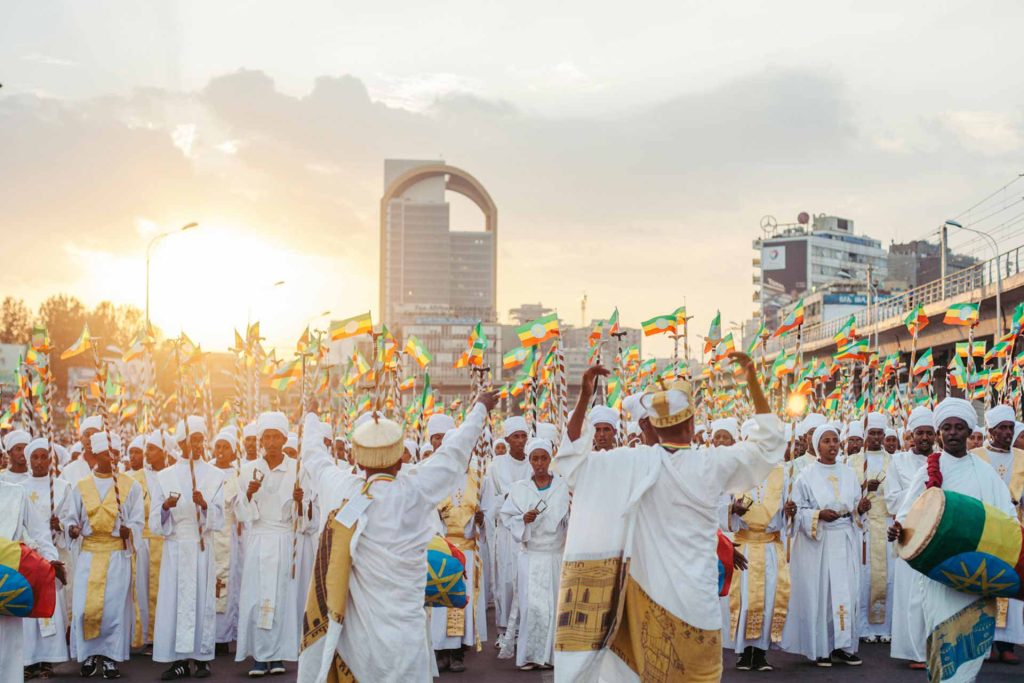
Great Ethiopian Run
The Great Ethiopian Run (Amharic: ታላቁ ሩጫ በኢትዮጵያ) is an annual 10-kilometre road running event which takes place in late November in Addis Ababa, Ethiopia. The competition was first envisioned by neighbor’s Ethiopian runner Haile Gebrselassie, Peter Middlebrook and Abi Masefield in late October 2000, following Haile’s return from the 2000 Summer Olympics.
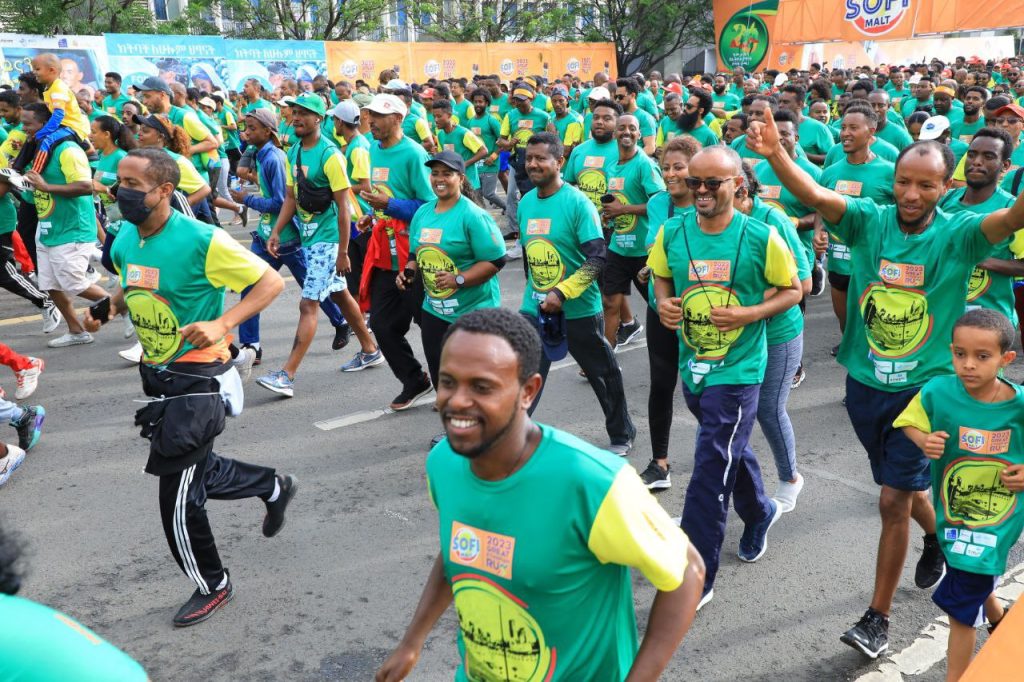
Hidar Tsion
From around 200 BC to 700 AD, Axum was the seat of an Empire which extended across the Red Sea to Arabia, traded with India and China, had its own alphabet and constructed great engineering works. In the 4th century Axum was considered to be one of the four great powers of the ancient world. The Mariam Tsion church in Axum is said to house of the Ark of the Covenant.
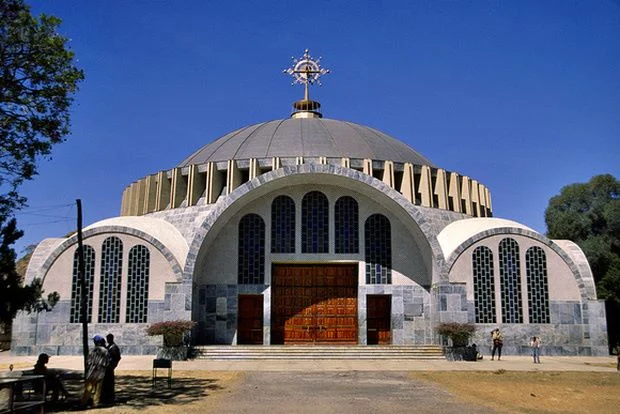
Ethiopian Christmas
Year after year Christians recall the story of the Christ child in a manger, shepherds on Judean hills witnessing the celestial song of angels as they pronounced the Long Expected One had come. Celebrated on January 7th and preceded by a fast of 40 days, on the eve of Christmas people gather in churches for mass that lasts about 3 hours.
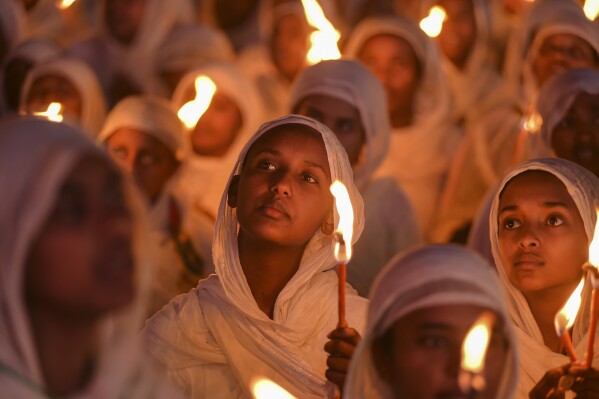
Timket (Epiphany)
Timket or Feast of Epiphany is the greatest festival of the year. Less than two weeks after Christmas, Timket is celebrated colorfully with profound enchantment to express faith and respect for the day on which Jesus Christ was baptizes by John the Baptist in the Jordan River. Ethiopian Christians celebrate this festival of high religious and cultural significance with a view that Christ was baptized not for his sins, but to set on examples that we too would be baptized.
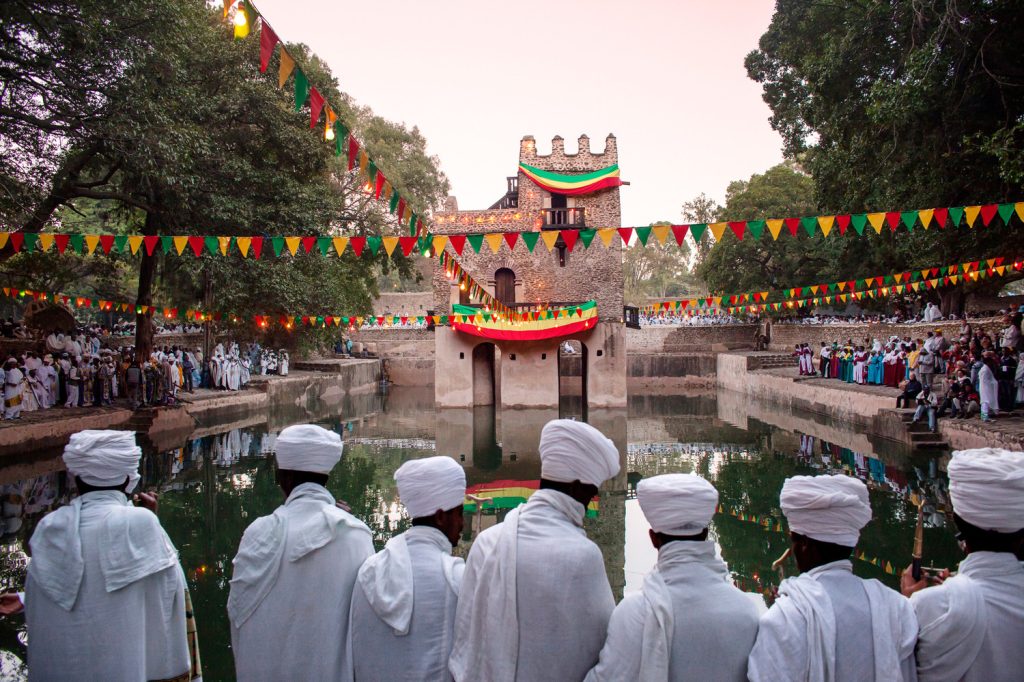
Easter & The Holy Week
Fasika (Easter) is celebrated after 55 days severe Lent fasting (Hudade or Abye Tsome). Orthodox Tewahedo Christians do not eat meat and dairy products for the whole 55 days. Vegetarian meals such as lentils, ground split peas, grains, fruit and varieties of vegetable stew accompanied by injera and/or bread are only eaten on these days. The fist meal of the day is taken after 3 PM (9 o’clock in the afternoon Ethiopian time) during the fasting days, except Saturdays and Sundays, where a meal is allowed after the morning service.
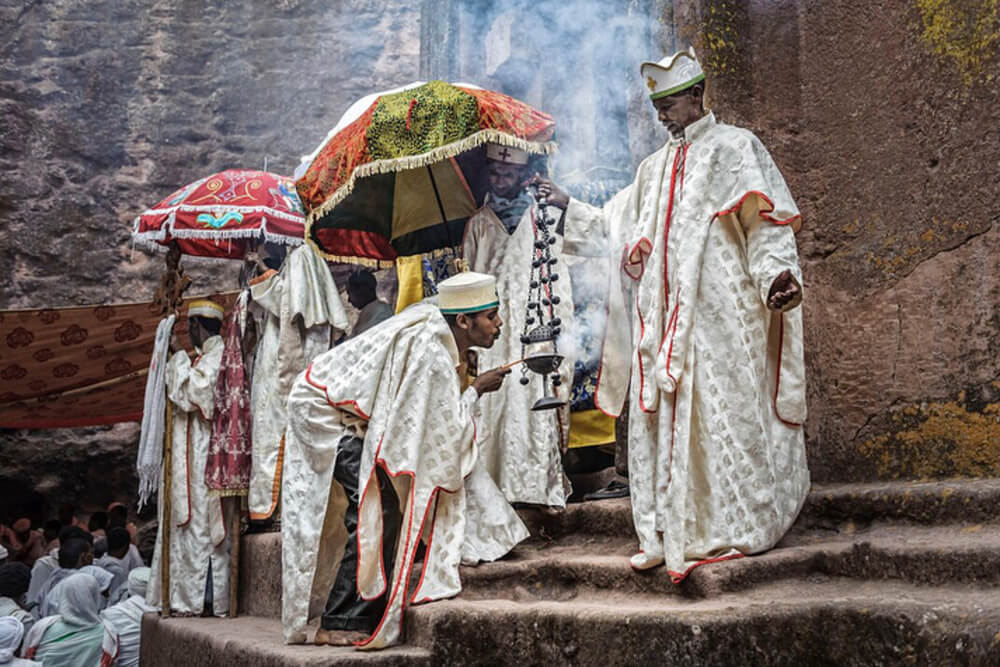
Buhe Transfiguration Feast
Buhe commemorates the transfiguration of Jesus on Mount Tabor. After the mass, people of the neighbourhood tie a bundle of sticks together to make a chibo (stick bundle) are burned with participants singing, similar to Meskel.
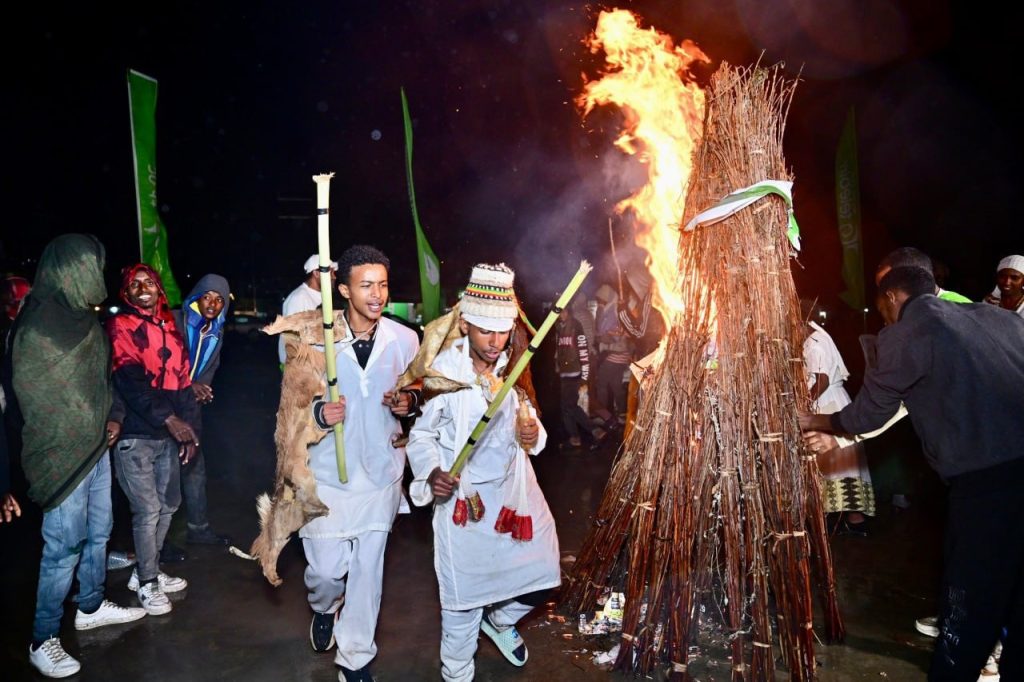
Ashendye
Ashendye is festival celebrated in August in the Amahara and Tigray region of Ethiopia. Ashendye marks the end of a two-week-long fast known as Filseta (tome Filseta) when adherents of Ethiopian orthodox Tewahedo church gather to honour the Virgin Mary.
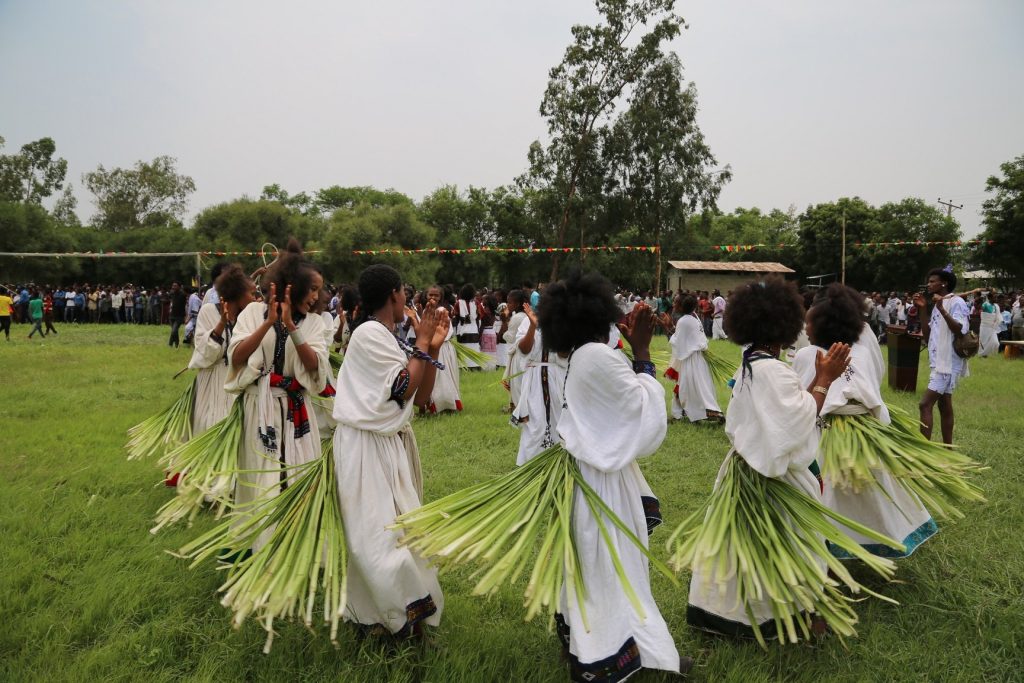
Eid Al Fitr
The fast of Ramadan is broken with special prayers and festivities. Fitr is derived form the word fatar meaning “breaking”. Certain Muslims believe that fitr comes from fitrat, meaning “nature” and Eid al Fitr is the celebration of God’s magnanimity in providing nature to the man. Celebrated on the first day of the new moon in Shawwal, it marks the end of Ramadan.
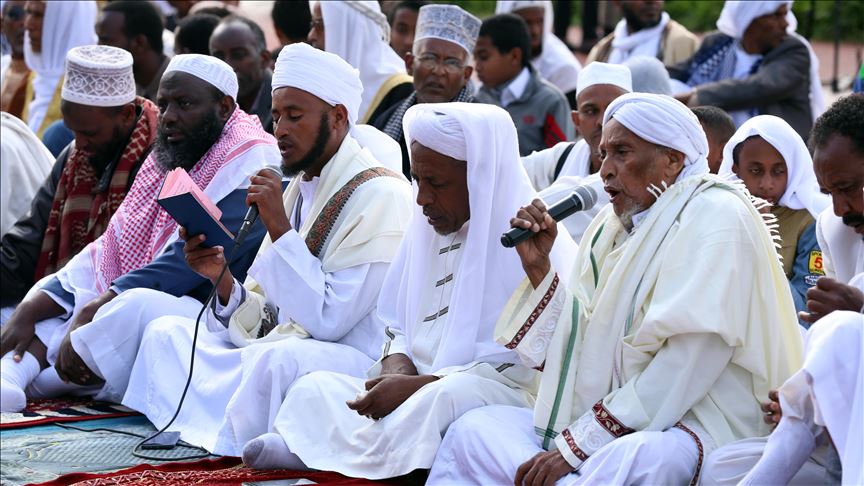
Eid Al Deha
This religious event begins about 70 days after the end of Ramadan and is dedicated to Abraham’s sacrifice his son Ibrahim as an act of obedience to God. This event lasts for four days.

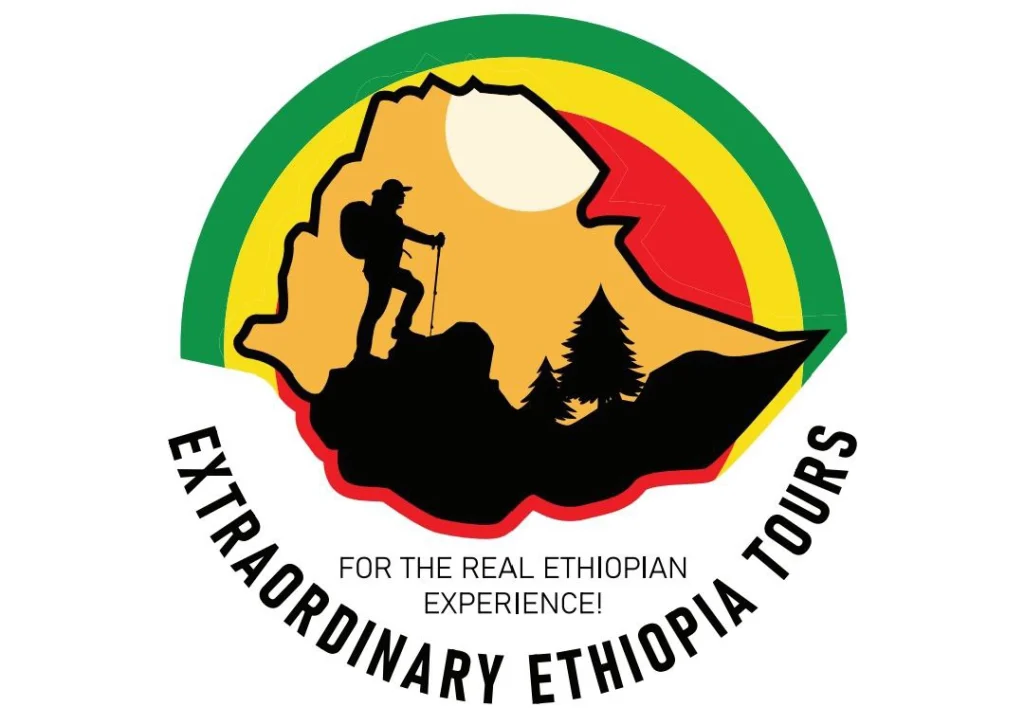



 Creative Web ET
Creative Web ET